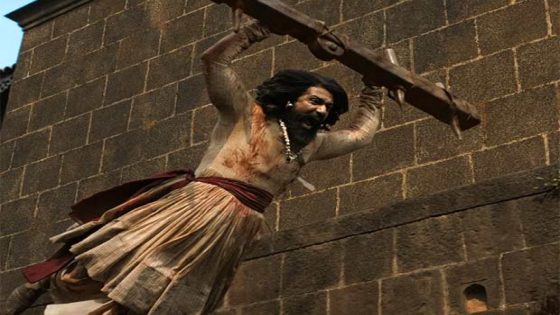And senior police were appointed to retirement age to enforce the law, not act as an extension of the government of the day.
Compare that to the US where police chiefs, two-bit sheriffs and judges all the way to the Supreme Court are political appointments, which means a president can influence the justice system years after they have left office because their judges remain in place.
Loading
In Australia, we have moved slowly towards the flawed and at times corrupt American system.
If a senior bureaucrat gives unpalatable advice the government appoints external consultants until they are told what they want to hear. Party flacks and hacks have the ministers’ ears while the career professionals sit in the waiting rooms watching daytime television.
Federal Attorney-General Mark Dreyfus is swimming against the tide by scrapping the Administrative Appeals Tribunal because he says too often it has become a greenhouse for political turnips.
This notion of independence is not some outdated convention. It stands, as we shall see, as the watertight door to protect us from seeping corruption. This is much more than sucking up to the boss.
Individual cops have a duty to enforce the law that can’t be usurped by politicians or even senior officers. The control creep here is that senior police are now put on contract, which means they can be terminated without appeal at the end of a set time.
NSW Police Commissioner Karen Webb earlier this week.Credit: Kate Geraghty
Just this week NSW Commissioner Karen Webb spoke more like a politician than a career police officer saying,“I’ve got the confidence of the minister and the premier, and I’ve got a job to do.”
When serving cop Beau Lamarre-Condon was arrested for allegedly killing Luke Davies and Jesse Baird with a police handgun, besieged senior NSW police launched a media counter-offensive.
In trying to dig their way out of a hole they told millions of potential jurors alleged facts that are more commonly discussed in a court, not a media conference.
Many decisions are made by politicians with elections in mind. Police were given a new 24-hour station in a coastal town that happened to be a swinging seat. The trouble is they didn’t want it because when the town reverted to a sleepy village after the tourist season it was ridiculous to keep it open to arrest the odd angry walrus.
It has nothing to do with crime but everything to do with votes.
To understand the importance of police independence let’s play Good Cop/Bad Cop.
The Bad Cop
The bent-as-a-banana Queensland commissioner Terry Lewis.
Between 1970 and 1976 the Queensland police commissioner was Ray Whitrod, a thoroughly decent and scrupulously honest career cop.

Police commissioner Terry Lewis in 1977. To call him an eel would be unfair to that aquatic species.Credit: Fairfax
As well as being straight, Whitrod was smart – smart enough to know his freshly promoted inspector Terry Lewis was a political limbo dancer and a crook to boot.
As Whitrod couldn’t sack Lewis and Queensland didn’t have a Siberia, he chose to send Slick Terry 750 kilometres away from Brisbane to Charleville.
He thought, not unreasonably, that the slippery inspector couldn’t work against him from the backblocks. But Queensland back then was anything but reasonable.
The cunning, if unintelligible peanut farmer turned premier, Joh Bjelke-Petersen, secretly flew to Charleville twice to meet Lewis. The fix was in. First he moved the police minister, who was Whitrod’s ally, and then he waited.
When Whitrod put in his recommendations for the next assistant commissioner, cabinet at the urging of the premier and now without the support of the police minister, ignored them and appointed Lewis, jumping more than 100 more qualified senior police.
Whitrod, his independence crushed, resigned on principle.
Rather than realising the error of his ways, Joh appointed Lewis commissioner.
Whitrod was fiercely independent and an outsider while Lewis had been mentored by the corrupt (and slightly mad) commissioner Frank Bischof.
What could be better than to replace the annoyingly honest Whitrod with a local puppet?
The unspoken deal was that if the commissioner did what he was told and was prepared to be a political tool the government would turn a blind eye to corruption.

Sir Joh Bjelke-Petersen in 1987.Credit: Fairfax Media
The premier and the commissioner were, in effect, holding each other’s testicles with an understanding neither would squeeze.
About 10 years later the system imploded, leading to the Fitzgerald Inquiry into corruption. Lewis ended up in jail.
Evidence included that when his bribe package was on the light side he remained courteous saying, “little fish are sweet.”
Tinned sardines, from the prison canteen, are not.
The Good Cop
Victoria’s chief commissioner Sinclair Imrie (Mick) Miller.
The careers of Miller and Lewis were similar – on paper. Both were awarded Churchill fellowships (Miller in 1967 and Lewis in 1968), they were appointed police chiefs in the 1970s, were smooth movers, were long shots to be appointed chief, would rule for a decade and were young – both were 48.
And that is the end of the similarities.

Mick Miller reviewing police graduates in August 1987, his last year as chief commissioner. Credit: Cathryn Tremain
Miller was honest, spoke his mind and stared down any political interference. Lewis was dishonest, lied through his teeth and was a political lapdog.
When Miller was appointed assistant commissioner in 1971 then chief, Reg Jackson, told him, “you weren’t my choice.”
A year later, when another assistant commissioner refused an out-of-hours call for an emergency, the police operator rang Miller who returned to duty. The emergency was a group of school kids and their teacher had been abducted from their one-class school at Faraday.
He worked closely with education minister Lindsay Thompson until the hostages were saved and kidnapper Edwin John Eastwood was arrested.
In February 1977 Eastwood committed the same crime at the Wooreen State School. Again Miller and Thompson teamed up.
A few months later Jackson was due to retire, nominating a shortlist for his replacement – he lobbied heavily for his deputy.
Victoria had been through two police scandals that resulted in judicial inquiries and premier Sir Rupert Hamer wanted someone fresh. Thompson recommended Miller who became chief commissioner in June 1977.
There lies the difference. Hamer wanted someone honest and who could run the force without needing political direction. Bjelke-Petersen wanted someone dishonest and malleable as political putty.
Loading
Today all senior cops know the only way to tackle organised crime is to pool information and resources. When Miller urged the same strategy 40 years ago through the Australian Bureau of Criminal Intelligence he was deliberately sidelined by cops more interested in lining their pockets or keeping power.
Every year the commissioners voted to appoint a chair of the ABCI. They refused to pick Miller but twice elected Lewis.
Lewis served 10 years as Joh’s tame cop. He was ordered to stand down in September 1987 and Joh crashed and burned a few months later.
Miller served Labor and Conservative governments. It is fair to say his politics leant to the right. Yet well after both had retired Miller would regularly lunch with his ex-police minister, Race Matthews, who was well to the left.
Despite not being politically aligned they both understood the need for police to be at arm’s length from the political process and enforce the laws of the government of the day.
When Sir Edward Lyons, a close buddy of Joh and a political ally of the National Party, was caught driving with a blood alcohol level twice the limit – you guessed it. The charges disappeared.
When a police minister mentioned to Miller his government driver had been booked for speeding the result was different.
Miller asked for details and the minister must have thought the paperwork would disappear. Within days the minister was puzzled when the chief commissioner handed him the officer’s details. Asked why, the politician was told firmly he should ring the country cop to congratulate him on his exemplary work.
The minister made the call and never again tried to pull a string.
Start the day with a summary of the day’s most important and interesting stories, analysis and insights. Sign up for our Morning Edition newsletter.
Source Agencies


